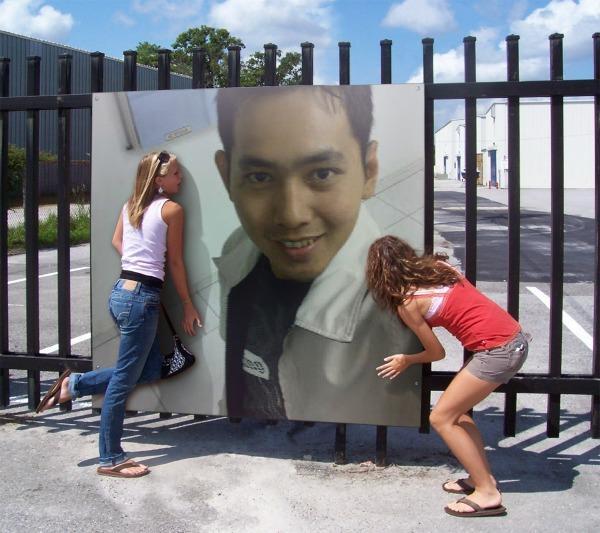How to Be Funny
19.16
Many people believe comedians are born funny. Nothing is further from the truth. Some develop the skill as children as a method of dealing with school bullies, and the everyday anguish growing-up causes so many of us. Others began studying the subject after realising how powerful a tool it is in entertaining and delighting an audience.
1. Help solve other people’s problems, and you build an instant rapport with them. Here lies the basis on which being funny germinates, and then later grows.
There is little difference in people. Make fun of your own problems, and an audience will empathise, mainly because they have very similar problems to you. By helping them to come to terms with their own problems you help them in dealing with, what can be for them, a difficult dilemma they would, under normal circumstances, prefer not to think about.
2. For those doing the laughing, and for that matter comedians too, humour is a great escape from reality. The comedian befriends an audience, much as a circus clown does with children. Here lies another clue as to what humour is – not is not so much to do with the words used but with vocal expression, character exaggeration, comic timing, and pregnant pauses so full of meaning.
3. The next time you watch a favourite comedian note how they are not afraid to laugh at themselves. This is because humour is a universal human activity that allows the comedian to become a philosophical spectator of his or her own life in relation to those they have around them. Listen carefully to the content of comedy, and you may notice that the most popular topics often revolve around friends (including newly formed quasi friends found in the audience), and family.
4. The props used by the circus clown to humour children are not so effective with adults. Scene setting, such as a public bar, is tolerated but it is the comedian’s ‘unique’ personality that must shine through. Have you ever thought about how many top comedians have similar acts? Non. Success in humour is about being unique.
5. Being funny is seriously hard work. Many that fail at being funny do so because they don’t work hard enough at it. Comedy is no different to any other skill. The ‘fortunate few funny folk’ having all the lucky breaks is nonsense. Luck plays little part in whether or not you are likely to succeed as a comedian. It was Gary Player who said, "The more I practise the luckier I get". This is as true in comedy as it is in golf.
6. Good humour never stops growing. It is a baby conceived in the mind of the comedian, that is nurtured to adulthood, and often only dies with the demise of the creator.
The best comedians are constantly reworking their best material. They may be at the top of their profession but they never stop asking the question "How can I make this mediocre story better?" Theirs is a quest for perfection that never comes.
Writing good material sometimes requires an ability to let go of ‘the baby’. Comedians often fear culling their best stories, but have come to realise that effective comedy production requires an ability to prune to facilitate the promotion of new growth.
1. Help solve other people’s problems, and you build an instant rapport with them. Here lies the basis on which being funny germinates, and then later grows.
There is little difference in people. Make fun of your own problems, and an audience will empathise, mainly because they have very similar problems to you. By helping them to come to terms with their own problems you help them in dealing with, what can be for them, a difficult dilemma they would, under normal circumstances, prefer not to think about.
2. For those doing the laughing, and for that matter comedians too, humour is a great escape from reality. The comedian befriends an audience, much as a circus clown does with children. Here lies another clue as to what humour is – not is not so much to do with the words used but with vocal expression, character exaggeration, comic timing, and pregnant pauses so full of meaning.
3. The next time you watch a favourite comedian note how they are not afraid to laugh at themselves. This is because humour is a universal human activity that allows the comedian to become a philosophical spectator of his or her own life in relation to those they have around them. Listen carefully to the content of comedy, and you may notice that the most popular topics often revolve around friends (including newly formed quasi friends found in the audience), and family.
4. The props used by the circus clown to humour children are not so effective with adults. Scene setting, such as a public bar, is tolerated but it is the comedian’s ‘unique’ personality that must shine through. Have you ever thought about how many top comedians have similar acts? Non. Success in humour is about being unique.
5. Being funny is seriously hard work. Many that fail at being funny do so because they don’t work hard enough at it. Comedy is no different to any other skill. The ‘fortunate few funny folk’ having all the lucky breaks is nonsense. Luck plays little part in whether or not you are likely to succeed as a comedian. It was Gary Player who said, "The more I practise the luckier I get". This is as true in comedy as it is in golf.
6. Good humour never stops growing. It is a baby conceived in the mind of the comedian, that is nurtured to adulthood, and often only dies with the demise of the creator.
The best comedians are constantly reworking their best material. They may be at the top of their profession but they never stop asking the question "How can I make this mediocre story better?" Theirs is a quest for perfection that never comes.
Writing good material sometimes requires an ability to let go of ‘the baby’. Comedians often fear culling their best stories, but have come to realise that effective comedy production requires an ability to prune to facilitate the promotion of new growth.




























Posting Komentar
Welcome To My Blog...Your Comment Please..